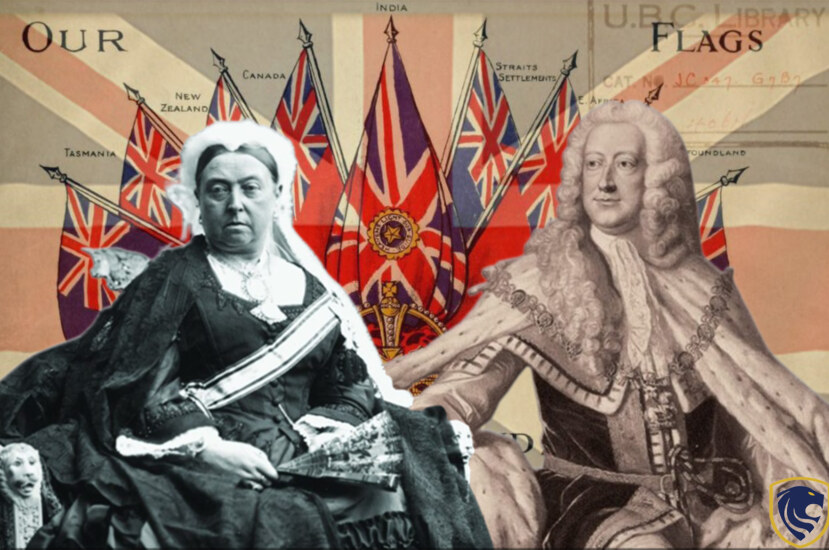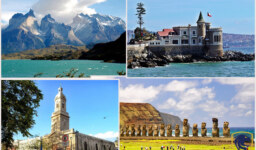At the pinnacle of its power, the British Empire was commonly described as “the empire on which the sun never sets”. The British empire conquered a vast area of territory that at least one of its territories would be in at thedaytimeime. There w a competition among the European countries such as British, French, and Dutch, to conquer the African and Asian countries. Sometimes these rivalries led to wars, and the British emerged victorious and were able to secure the biggest empire in history. The number of people who were under the British empire re estimated to be more than 412 million people, which constituted a percent of the world community in 1913. The area of territory they owned was 35.5 million km2 which is 24 percent of the Earth’s total land area.
First British Empire

It was the in 16th century that the British commenced acquiring colonies, but it was in the 18th century they conquered other lands on a big scale. the In 17 and 18th centuries England controlled North America the and Caribbean islands. They set up plantations in those countries for the cultivation of crops like sugar and tobacco as perfect climes prevailed for cultivation.
American War of Independence
The American War of independence began in 1775 and officially ended in 1783. In this move,ment 13 colonies in North America fought to be free from the British Empire. Because, they were unhappy about having to give away their resources to the British Empire. America received help from Spain, France and the Netherlands to gain independence. Finally, After independence, America was named the United States of America. The British empire lost a considerable part of its empire. This was deemed as the conclusion of the ‘First British Empire’.

Second British Empire
Towards the end of the of 18th century and at the beginning the of 19th century, many parts of the world came under the British Empire, establishing the second British Empire. For instance, Australia, India, Ceylon, Trinidad, and some other territories of Asia were British colonies.
Also, the East Indian Company played a major part in establishing power in the colonies. They set up trading posts. They got the authority of tr of opulent goods like spices, cotton, silk, and tea from India and China.

The East India company using a private army of more than 26000 men, expanded the control of India. After an Indian revolt against the company in 1857, The British crown took the possession of Indian subcontinent. The East Indian Company’s forces were recruited into the British army. The EIC navy was dissolvAfterward, ards the British Raj system was established in India. A new Secretary of State for India was designated to look into the affairs of the region and he directly reported to the Parliament. Queen Victoria was declared the Empress of India in 1877.
By the early 1900s, countries in Africa such as Egypt, Kenya Nigewaswere conquered by the British Empire.
Nationalism
Many nations including Asian and African countries strived hard to free themselves from British rule. The British empire toppled those movements with violence and cruelty. In 1919, the British executed and imprisoned thousands of people who participated in a protest demanding independence in India.

It is known as Amritsar Massacre. Further, in Kenya, a similar incident happened where thousands of protesters were killed and imprisoned in 1952. The incarcerated were tortured and they had to live in inhumane conditions. Millions of people were chased from their living places and made to live elsewhere. This movement is known as the ‘Mau Mau Uprising’
Freedom Fight of India
The Indian freedom fight was prominent and lauded for its nature of non-violence.

The non-violence movement tMahatmathma Gandhi spearheaded was strong and was a big contributory factor for the independence gained in 1947. His struggled le, policies were non-violent, thus they became a catalyst for thousands of people throughout the world. Furthermore, his ideologies were based on pacifism, truthfulness, forbearance, the and well-being of people. He was successful in his attempts to enforce the British to leave India and get freedom from colonial rule.
The Indian National Congress
The Indian National Congress was established in 1885. In 1920 Gandhi assure med headship of the party. Under the guidance and directionMahatmathma Gandhi, the Congress turned out to be the figurehead of India’s fight for freedom. Moreover, the congress fought for their demands and carried out masatyagraharaha.

The Indian National Congress proclaimed the independence of India on 26th January 1930. Even though the British didn’t recognize the declaration, they started negotiations with Congress.
The Champaran Satyagraha
The first Sathyagraha that Gandhi carried out was “The Champaran Satyagraha in 1917”. It was led especially by farmers in the Chamaparan district in Bihar. It was considered red historically important movement.

Other major movements ensued this move which helped India in attaining freedom from British colonial rule. Further, throughout his work, he carried out non-violent demonstrations with his followers all over the country. Mahatma Gandhi’s fight was to regain basic human rights for all Indians.
The Quit India movement
On 8th August 1942, Mahatma Gandhi commenced ‘the Quit India movement’. World War ii was ongoing concurrently. The intent of ‘the Quit India Movement’ was to force British dominion out of India. Then, Mahatma Gandhi’s ‘Do or Die’ speech motivated the Indian populace to fight hard to get rid of British rule. It led to the incarceration of all who held membership of the Indian National Congress. They were kept in custody without a trial. The unfair measures the British took to suppress the protesters, didn’t halt them, instead, they resulted in ubiquitous protests throughout India. The British government agreed to renounce its rulership over India, towards the end of world war II. Mahatma Gandhi put an end to the ‘Quit India movement’. Consequently, thousands of prisoners were freed from jail.

Africa
In Africa too, independence movements arose throughout African countries in the mid-1900s and in some countries hundreds of years earlier. Some Africans got the opportunity to receive education from Christian and Muslim schools. They were exposed to teachings about human rights and political views. As a result, they were greatly influenced and they realized that they deserve independence.
World Wars
Both world wars caused economic recessions in Britain. So, Britain grew less interest in the empire. Britain won both wars but at the cost of an economic crisis.

In the first world war, Indian troops participated in the war and were considered invaluable allies. But when they returned home from the battlefield they received the same old status of ‘ordinary natives’. They were not considered ‘precious’ anymore. In World War II, the colonial masters of the British agreed to give their colonies’ support to world war II, without the consultation of its colonial subjects. In, India the congress party disapproved of it and they distanced themselves from the British and didn’t cooperate with the war, firstly passively, and later actively.
During the two world wars, nationalistic sentiments were aroused in the populace in many of the British colonies. They desired independence and fought for independence.
The End of the British Empire
In 1939, South Africa, Australia, and New Zealand got independence. Those countries were the first to gain independence. Subsequently,y the United Kingdom relinquish power over a total of 62 countries. In 1947, India got its independence, followed by Sri Lanka and Myanmar. Frome the 1950s to the 1980s, African colonies also strived hard and achieved independence.

Very few countries were under the British empire by 1979. In 1997 Hong Kong was passed on to China. At the time, prince Charles proclaimed it the ‘end of the empire’. Presently Britain possesses 14 colonies left. The Antarctic is under British rule. It is vast but unpopulated. And Falkland Islands is another prevailing colony. Those islands are 4700 square miles.
Commonwealth
The Commonwealth is an organization comprising 50 countries that were under the British Empire. It was incepted by Australia, New Zealand, South Africa, and the United Kingdom in 1931. Moreover, it is based on a core value system like fair political elections, respect for human rights, and working towards international peace. The member countries can decide whether to join the organization or renounce the membership.

The Legacy of the British Empire
Even at present, the presence of the British empire can be felt in their colonies, which at one point covered over a quarter of the Earth. For instance, English is spoken in the countries that the British Empire ruled. The positive aspects that the British colonies implanted into their system encompass
globalization, free trade, democracy, law, railways, education, and medicine. And also, the British Empire can be commended for the establishment of the rule of law, and the introduction of parliamentary democracy and constitutional government. Also, other institutions like civil service, the police, the military, and the legal system, and all the other important institutions that help to rule the country smoothly were incepted by the British Empire.





[…] Qing emperors were conversant in Chinese as well as in Manchu. They spread Manchu customs among the Chinese Han […]